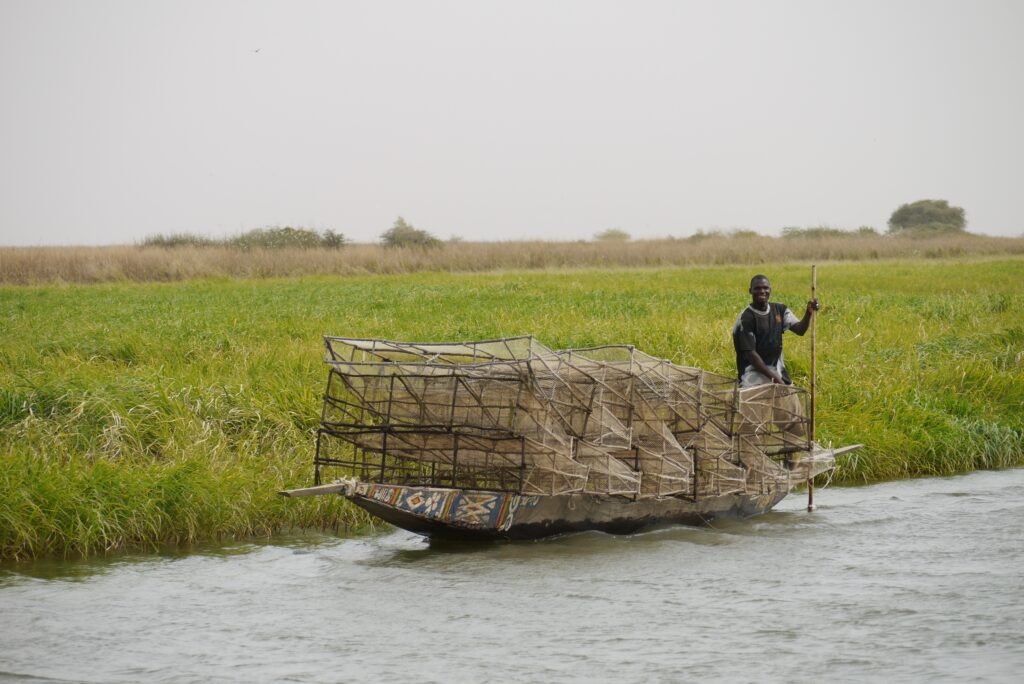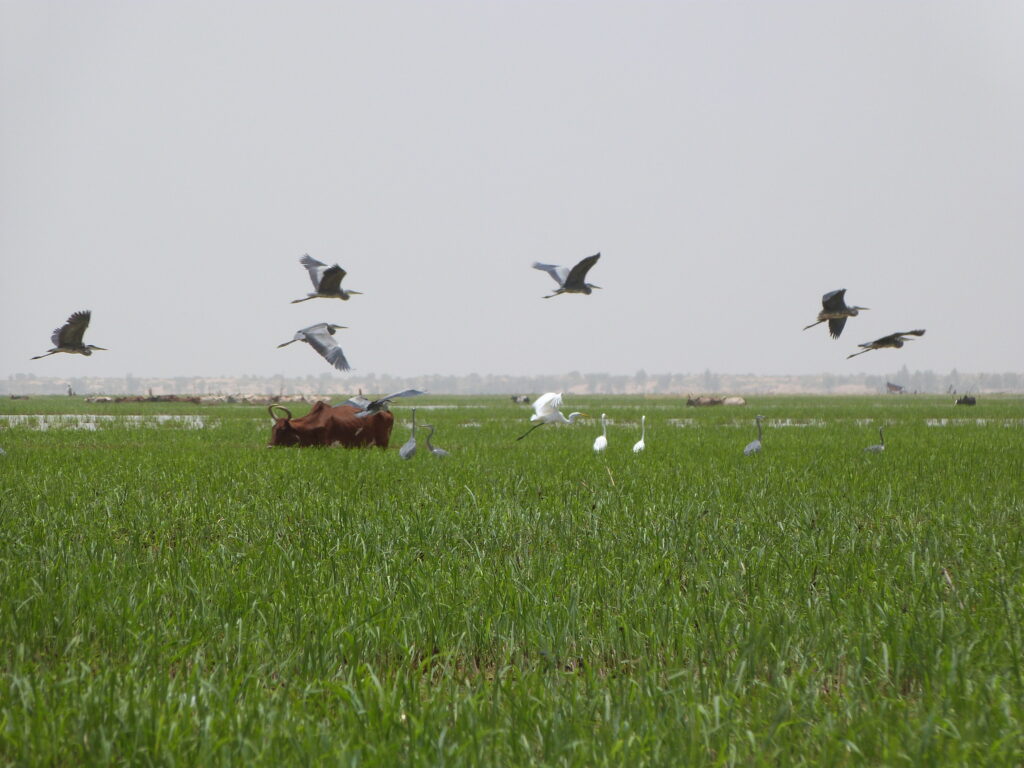
Wetlands for peace: the Inner Niger Delta
-
Water
Located in Mali, West Africa, the Inner Niger Delta (IND) is the largest wetland in the Sahel and the second largest in Africa. Classified as a wetland of international importance in 2004, nearly one million people depend on it for fishing, agriculture and livestock.
Unfortunately, decades of degradation have left the delta vulnerable. Pressure on natural resources by a growing population, the construction of several dams upstream, and the irregularity of seasons brought on by climate change have been major contributors to its ruin. The pressures on the delta in turn can lead to unrest within the communities that depend on it.
World Water Day 2024 (22 March) is celebrated today under the theme of “Water for Peace”. Wetland ecosystems are central to the functioning of the water cycle. In fact, they are so crucial that a world without wetlands would be a world without freshwater. Water, peace, and security are intricately linked in the IND of Mali. With partners and stakeholders, Wetlands International works on fostering harmony in the region, proving that water, and wetlands, can be drivers of peace.
Water and water-related activities are central to the economic wellbeing of the communities that live off the delta. The Niger River irrigates agricultural land and seasonal floods deposit rich sediments, favorable to soil fertility. Fish and other freshwater catch from the river are an important source of protein, and fishing provides a livelihood for many families. However, natural and man-made pressures to the quality and quantity of water in the delta give rise to competition, tension, and conflict.

The Water, Peace, and Security partnership (WPS), of which Wetlands International is a member, is a consortium of organizations working towards the peaceful management of natural resources. The Water, Peace and Security (WPS) partnership is a collaboration between the Netherlands Ministry of Foreign Affairs, the German Agency for International Cooperation (GIZ) and a consortium of six partners: IHE Delft (lead partner), World Resources Institute (WRI), Deltares, The Hague Centre for Strategic Studies (HCSS), Wetlands International and International Alert. In the IND of Mali, WPS has undertaken work to understand the hydrogeological conditions, note conflicts, map stakeholders and policies, and develop a rapport with key decision makers.
“Water Champions” across decision-making levels and from various practices (water, agriculture, fishing, and pasture management) provide data, support the development of tools, and exchange learnings with one another. They are committed to hold regular dialogues in crucial water and basin management departments in favor of peaceful negotiations. WPS also co-developed dialogue support tools like conflict hotspot mapping, causal loop analysis, and an accessible visual dashboard.
A major achievement of WPS in 2023 was the adoption of the solution to demarcate pastoral routes, after intense lobbying by members of the Djenné commune. It has helped ease tensions between farmers and pastoralists and positively impacted six surrounding communes. Another accomplishment has been the enforcement of the law to discontinue the use of harmful fishing gear in Konna. This contributed to declining tensions and conflicts around unsustainable fishing practices.

Through cooperation, collaboration, and conflict-sensitive management, water and healthy wetlands can be powerful propagators of peace. This World Water Day, learn more about the WPS and our work in Mali.
